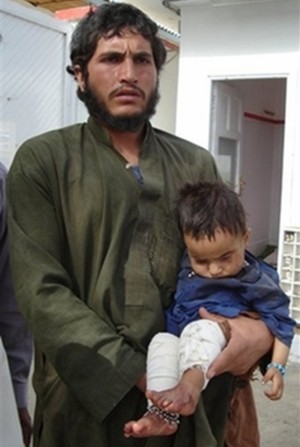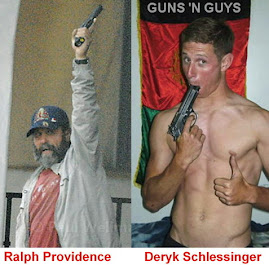The Massacre of Musa Qala
3. Afghanistan: Aid being distributed to displaced families in
Musa Qala
4. Dec. 14 airpower summary air strike chart 2004-2007
me are always the most significant,
the most troubling."

first photos: a small boy injured by
US/NATO bombs
 Take a look at Nick Cornish’s series of photographs in The Times Online of some of the 6,000 UK/American/Afghan forces engaged in the recent assault on the town of Musa Qala, in Helmand province. They show their massive firepower: lines of armoured vehicles; men in full military gear dragging away bare-footed Taliban captives in ragged civilian clothes. An unnamed Taliban is lying sprawled out dead in a field.
Take a look at Nick Cornish’s series of photographs in The Times Online of some of the 6,000 UK/American/Afghan forces engaged in the recent assault on the town of Musa Qala, in Helmand province. They show their massive firepower: lines of armoured vehicles; men in full military gear dragging away bare-footed Taliban captives in ragged civilian clothes. An unnamed Taliban is lying sprawled out dead in a field.Photographs in the press before the attacks on the “strategically significant town” showed rag-tag Taliban forces crammed in battered old trucks desperately clutching their small firearms. Against them, poised to attack, stood the full might of the most powerful nation on the globe: armoured vehicles, infantry, artillery and logistics backed up by “dozens of attack helicopters and ground attack aircraft”, as the Daily Telegraph reported.
How many Taliban “forces” were there defending the town? We will never know. According to the British military spokesman, Lt Col. Richard Eaton, just 200. other reports suggested 2,000. Whatever the figure, this was no “battle”. According to the headline in the Observer of 9 December 2007, “Fierce battles rages for Taliban stronghold”. Yet when the firepower of one side so overwhelms that of the other (missing the crucial cover from the air bombardment) is this not better described as a massacre, a form of hi-tech barbarism?
How many casualties did the Taliban suffer? Again, we will never know. Significantly Nick Meo reported in The Times of 11 December, after the Taliban had allegedly fled the town on motorcycles: “Fears were growing that there had been heavy civilian casualties.” Certainly, buried in all the reports was the news that 2007 had proved “the deadliest” in Afghanistan since the US invasion in 2001 with more than 6,200 people estimated to have been killed. All we know, then, is that the many many dead Afghans will remain uncounted, unnamed.
So amidst the din of warfare coverage, the silences and omissions for me are always the most significant, the most troubling.
Horror is mentioned in the coverage but the focus is on the Taliban. The Afghan president, Hamid Karzai, alleged that an unnamed 15-year-old boy had been burned to death on a stove and the town had to be seized from the Taliban to halt such atrocities. “Taliban horror had to end” is the headline in the Mirror of 11 December 2007. There is no such outrage over “our” atrocities.In contrast to the silence surrounding the dead Afghans, British casualties are named and celebrated. Sergeant Lee Johnson, of the 2nd Battalion of the Yorkshire Regiment, died on 7 December. His commanding officer describes him as “a huge personality and supreme soldier”.
And in the face of the unspeakable horrors, the military mumble the absurdities of massacrespeak. According to Lt Col Eaton, quoted in the Guardian of 10 December 2007: “It is like a game of chess and we are moving the right pieces into the right places so they are where we want them to be when we need them.”
In this way the hi-tech barbarism of the assault on Musa Qala is domesticated and trivialised, reduced to the level of a game of chess in a strange jangle of words.
* * *
Nearly 120 years ago this month, his ancestors fought the 7th Cavalry
at the infamous battle of Wounded Knee
May the eagle take you on your journey
Corporal Tanner J. O’Leary










.jpg)


